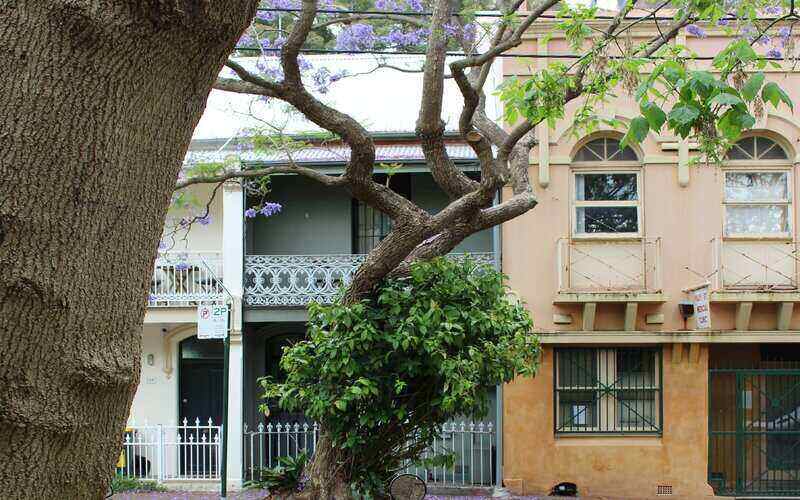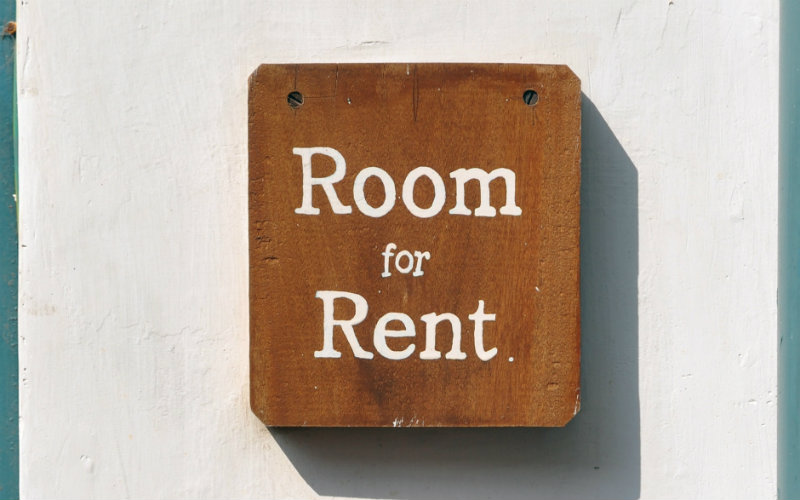Landlord and tenant
The relationship between tenant and landlord can be a tricky one, with the potential to sour and even end up in court for a number of reasons.
As easy as this might be, as a landlord you can’t do whatever you want: you might own the property but the tenants live there, and they have rights just as you do as the property owner. That’s why there are tenants' rights legislated by each state government clearly listing what the rights and responsibilities of each party are.
According to Global Property Guide, Australia’s laws for landlords and tenants are judged to be neutral, meaning both parties are well protected by each state’s Residential Tenancy Act (RTA). The laws are clear and numerous, but learning them all requires reading through pages upon pages of boring documents, and who has time for that?
This article could be a much less boring way to learn the essentials of tenants' rights if you’re a landlord, and being aware of these laws is a good way to ensure you stay on good terms with your tenants and can enjoy a sustainable, symbiotic relationship.
Tenants' rights: landlord inspections
Landlords are not allowed to just show up at the property unannounced, as this would be a violation of the tenant’s privacy. While you are allowed to enter the property even if they’re not there, in all but extreme circumstances you’ll need to provide a minimum notice period to the tenants in writing.
The minimum notice periods, as well as the frequency of these visits, are different in each state:
|
State |
Notice required |
Frequency |
|---|---|---|
|
NSW |
At least seven days’ written notice |
No more than four routine inspections a year, entry must be between 8 am and 8 pm (excluding Sundays and public holidays) |
|
VIC |
At least 24 hours’ written notice. |
Entry must be between 8 am and 6 pm excluding public holidays (no frequency limits) |
|
QLD |
At least seven days’ written notice unless otherwise agreed upon, and not within three months of a previous entry |
Entry must be between 8 am and 6 pm except for Sundays and public holidays (quarterly visits are allowed as stated before). |
|
WA |
Between seven and 14 days' written notice |
No more than four routine inspections per year |
|
SA |
Between seven and 14 days' written notice |
Maximum of two-hour visits between 8 am and 6 pm, all days except Sundays and public holidays |
|
ACT |
At least seven days' written notice |
No more than two routine inspections per year, additional inspections allowed in the first month of a new lease. Entry must be between 8 am and 6 pm, all days except Sundays and public holidays. |
|
TAS |
At least 24 hours' written notice |
Entry must be between 8 am and 6 pm, no more than two routine inspections per year |
|
NT |
At least seven days' written notice required |
Entry must be between 7 am and 9 pm, cannot do routine inspections within three months of the last one |
These regulations also apply to the property agent if you choose to use one of those. Entries can often be allowed outside of the stated times if written consent is given by the tenants.
In the event of an emergency, like a gas leak, only one state (Victoria) requires more than 24 hours' notice if you need to enter the property.
You are allowed to take photos of the property when you arrive, although the tenants are within their rights to request that no photos are taken which identify them.
Landlords are allowed to enter the property more in the event that something within the property requires immediate maintenance, as they often have a responsibility to see to this.
Tenants' rights: repairs and maintenance
As a landlord you have a responsibility to ensure the property is maintained and stays in a liveable condition, with requests for repairs responded to promptly by either yourself or the property manager.
Repairs
There’s generally a distinction between urgent repairs and non-urgent ones. Urgent repairs are things that can cause danger or significant inconvenience to a person’s health (like electrical faults or a roof collapsing) or hygiene (like a broken toilet). Other examples include:
- Gas leaks
- Broken utilities
- Flooding
- Storm and fire damage
- Broken staircases
These urgent repairs usually require a landlord to legally respond and attempt to fix within 24-48 hours, although these time frames differ from state to state. Landlords may have to compensate tenants for up to $1,000 if they pay for urgent repairs.
Actually completing urgent repairs doesn’t have to be done straight away but there are time frames depending on your state:
|
State |
Urgent repair timeframe |
|---|---|
| NSW | “Within a reasonable time” |
| VIC | 14 days |
| QLD |
“Within a reasonable time” |
| WA | “Within a reasonable time” |
| SA | Depends on the urgency |
| ACT | Four weeks |
| TAS | 28 days |
| NT | Depends on the urgency |
Non-urgent repairs, on the other hand, are things tenants expect to be in a “reasonable working order” when they move in but aren’t crucial to their short-term wellbeing. These non-urgent repairs could be things like:
- A broken dishwasher
- A busted air conditioner
- Faulty kitchen appliances etc.
Tenants can inform their landlords of these requests for repairs but they cannot withhold rent. They can, however, terminate the lease without a penalty based on each state’s legislation.
Maintenance
The parts of the property the tenants are responsible for maintaining will be listed in the tenancy agreement, otherwise the responsibility will fall to the landlord. For example, it’s common to see gardening listed in a rental agreement as a tenant’s responsibility.
Tenants are also usually responsible for:
- Connecting and paying for utilities (gas and electricity)
- Maintaining the lawns, weeding and pruning
- Fixing internal fixtures (such as lightbulbs) if safe or arranging for them to be fixed
Tenants are not responsible for any maintenance that might put them in danger, such as cleaning gutters or fixing faulty wiring.
Tenants' rights: rent increases and decreases
As a landlord, you have the right to set the weekly rent on your property, and the market will determine if anyone is willing to pay that price. If you decide the current rent your tenants are paying is too low - say, for example, the median weekly rent in that area has increased or the property has increased in value - then you are able to increase the rent. You just won’t be able to do it straight away, and there are rules and regulations you need to abide by.
For one thing, there are limits as to how often a landlord can increase a property's rent, and every state except New South Wales stipulates a minimum waiting period before raising the price. All states bar the Northern Territory also require you give the tenants at least 60 days notice, to give them time to either review the rent increase or find another property to live in.
|
State |
Rental increase limit |
Notice required |
|---|---|---|
|
NSW |
No limit |
60 days |
|
VIC |
Once every six months |
60 days/two months |
|
QLD |
Once every six months |
60 days/two months |
|
WA |
Once every six months |
60 days/months |
|
SA |
Once every 12 months |
60 days/eight weeks |
|
ACT |
Once every 12 months |
60 days/eight weeks |
|
TAS |
Once every 12 months |
60 days/eight weeks |
|
NT |
Once every six months |
30 days |
Often you’ll find that rents can’t be increased unless this has been added to the tenancy agreement prior to the tenants signing. There are links to each state’s tenancy laws at the bottom of this page so you can have a look.
If you do decide to raise your rent, you should send your tenants a written notice that:
- identifies the new rental amount in clear, unambiguous terms, and
- clearly identify the date from which the new rent comes into effect
How much can you increase your rent by?
Strictly speaking, there’s no limit to how much you can increase your rent by. You can spike it by $1,000, but that doesn’t mean anyone will be willing to pay that much.
If a tenant deems a rental increase to be “excessive” they might choose to dispute it through their state’s tribunal service - these are also linked at the bottom of the page. These tribunals will assess the proposed rent increase against the consumer price index (CPI) as well as similar rent prices in the area.
There’s often no clear ruling on what an excessive rent increase is, although the ACT does specify 20% above the average rental increase in that area as excessive.
In other states, excessive rental increases might be considered as such if:
- The condition of the property has deteriorated or not improved
- The rent had only recently been increased
- The market value of the property has not improved
- Things that are detrimental to the property (like a high-rise construction going up right in front of it) have appeared
- If no other nearby properties have had rent increases
Can tenants request rent decreases?
Tenants are also able to request a rent decrease in writing if the quality of the property has substantially decreased. As we said above, a high-rise apartment commencing construction next door when it wasn’t there when they moved in might be such a reason. A significant drop in the market rate, broken appliances and property damage can also be grounds for a rent reduction.
Landlords don’t have to approve these rental decreases, but bear in mind that the tenants might have a good reason for requesting a decrease. If they’ve provided enough evidence (photos, notes etc.) that the property is not worth the rent they’re paying, they may look elsewhere once their lease expires if you don’t agree.
Meeting them halfway can be an ideal solution, but do your own research and contact your property agent (if you have one) to make sure you’re not getting taken for a ride.
Tenants' rights: ending a tenancy
An ideal tenant is someone who wants to stick around long-term and pays their rent on time, but this doesn’t always happen. The tenants themselves might have found a more suitable place to stay, or you might want them gone as they’ve proven to be a nightmare to deal with.
You generally can’t evict a tenant during a fixed-term lease unless they’ve breached the tenancy agreement, and in most cases, landlords are required to provide two-weeks for the tenant to fix the breach before moving to terminate the lease. Notice periods are almost always required in order to give tenants the time to find a new place to live.
Tenants' rights regarding terminating a tenancy vary from state to state:
|
State |
Notice required |
|---|---|
|
NSW |
|
|
VIC |
|
|
QLD |
|
|
WA |
|
|
SA |
|
|
ACT |
|
|
TAS |
|
|
NT |
|
Tenants can terminate a lease early provided they have legal grounds to do so. Such grounds might include:
- Significant financial hardship
- The tenant moving away for work
- The premises not being fit for living
- False and misleading statements made by the landlord/agent prior to your moving in
- The landlord refusing to make urgent repairs
- The death of another tenant
Tenants might have to pay a break fee under certain circumstances - check your state's relevant tenancy act to see if any apply.
Tenancy agreements can be terminated at any time as long as there is a mutual agreement. If tenants feel they are being unfairly or unlawfully evicted they can take their landlord to their state’s tenancy tribunal, which is why it’s important for both parties to keep written and photographic records.
Tenants' right: pets
Australia is one of the world’s most pet-loving nations. Research from Animal Medicines Australia found 62% of households contain at least one pet. This means most Australian renters are looking for pet-friendly accommodation, yet only 10% of rental homes are pet-friendly.
Suncorp’s 2019 Home Index Report found 59% of those aged 18-34 place importance on a potential new home’s pet-friendliness, and this was more important to them than its proximity to family (46%) and friends (39%).
Pets in rental properties are one of the most sensitive topics among landlords. Research has shown pet-owners are likely to stick around longer and even pay more, but this sometimes doesn’t counterbalance the damage and disruption pets can cause.
If you’re deciding whether to allow pets in your rental property, know that tenants have certain rights when it comes to their furry friends. And depending on the state you live in you might not even have a say in the matter.
Tenants have pets without permission: what to do?
Based on the table below, you can see landlords have more power when it comes to restricting pets in some states than others. Landlords might consider the likes of Western Australia to be better for restricting against pets, while the likes of Victoria and soon Queensland make it harder.
|
State |
Pet regulations |
|---|---|
|
NSW |
Landlords can insert their own pet clauses into leases, and tenants should seek approval before bringing a pet into the house. Having one without permission could violate the lease. |
|
VIC |
The Victorian Government passed reforms to its Residential Tenancies Act in September 2018, and as of July 2020, landlords can no longer include pet-preventing clauses in leases. |
|
QLD |
As of November 2019, new legislation means all renters have the right to own a pet in Queensland, and landlords must demonstrate “reasonable grounds” to refuse them. |
|
WA |
Pets must be included in the lease via written landlord permission- otherwise, they’re not allowed. WA is also the only state where landlords can charge a “pet bond” of up to $260 to cover damages they might cause. |
|
SA |
Pets only permitted with a landlord’s written consent. |
|
ACT |
All renters have the right to own a pet in the ACT, and landlords must demonstrate “reasonable grounds” to refuse them. |
|
TAS |
Pets only permitted with a landlord’s written consent. |
|
NT |
No specific legislation regarding having pets, although pet bonds are illegal. Renters can seek approval from the landlord if they want a pet. |
Some states also have “breach of tenancy” clauses included where tenants can be evicted if a pet has been consistently causing damage or disturbing the peace and comfort of neighbours. In Victoria, for example, landlords can give an immediate “notice to vacate” if the pet has been found to endanger the safety of neighbours.
In most cases, landlords cannot refuse assistance animals if the tenant has a proven disability (i.e a guide dog for a blind tenant).
Research from the University of Western Sydney indicates 11% of pet-owning tenants ignored pet-free clauses anyway, so if you don’t allow pets you might want to check for signs of a dog or two living there during your next inspection.
What are tenants' rights when a landlord is selling the house?
Tenants should be aware that landlords can still sell the property at any time - they own it, of course. But this doesn’t mean the tenants have to move out when they do. Tenancy laws are quite clear stating that as long as the lease is fixed, landlords cannot force tenants to leave the property.
The new owner can choose to not renew the lease when it expires, but they must provide notice when they do so, and the amount of notice required varies from state to state (usually around 30-60 days warning). Plus, if ownership of the property changes hands, you can also negotiate to end the lease early if you so choose. In this case, tenants and landlords must come to a mutual conclusion. But in general, the new owner must comply with the existing lease until it ends.
Keep the property in a reasonable condition
When putting the property up for sale, the landlord is allowed to hold inspections while tenants are still living in the house. In most states, they need to give tenants 14 days of notice before the first viewing, and must make reasonable efforts to do so. Subsequent sale inspections may only require 24-48 hours' notice, depending on the state or territory.
Tenants do not have to be home when these inspections take place, but consent is required to publish any photos or videos of tenant’s belongings. Otherwise, the landlord can only use exterior shots.
Can a tenant refuse an open house?
Tenants can refuse open house requests in some states, such as Queensland. But it all depends on the state you live in, in which case you should check each state’s tenancy laws. Generally, open homes can only take place between 8 am and 8 pm and can’t take place on Sundays or public holidays.
As a landlord, you’re required to give tenants the required period of notice before holding an open house (often at least 24-48 hours). When holding an open house, try to minimise the disruption of the tenants’ peace and wellbeing if they’re in the home.
Living with the landlord: are tenants' rights any different?
Living with tenants doesn’t change too much in terms of the rules, as many of the relevant tenancy laws still apply. As the landlord, you’d still be responsible for things like repairs and maintenance, and while you live in the property and can see what’s going on inside, you still have to comply with the relevant advanced notice rules should you wish to have an independent property manager do an inspection.
As a landlord living with a tenant, you should understand that the tenant has the same right to live in an enjoy the property that you do. So you should try to avoid being too difficult for the tenants, as this will create uncomfortable living situations.
On the other hand, you should also avoid being too lenient. There are some situations where you need to be a landlord and not a friend, like when they trash the place and you need to get part or all of the bond back to repair it.
A good way to avoid any difficulties when living with tenants is to establish a set of rules and obligations at the start, as well as making sure all legal avenues are covered. You might still choose to go through a property manager to help with this.
Landlord tenant dispute: how to avoid conflicts
Barring perfect tenant/landlord relationships, disputes of some kind can be inevitable, whether they’re polite disputes or something a bit feistier.
Finding the right balance is important - you don’t have to keep unruly tenants around if they treat your property like a squatter’s den, but there’s also no need to make unreasonable demands or even violate tenancy laws. Remember: a happy tenant is much more likely to stick around for longer and thus help you avoid the costs associated with finding new tenants and not receiving any rent in the short term.
Documentation is important: both you and the tenants should complete an entry report prior to them moving in, which should help identify who is at fault in any given situation. Make sure you stick to the agreement you made with the tenant, and remember to communicate clearly and politely.
And above all, try putting yourself in the tenant’s shoes before jumping to the worst-case scenario: there’s a good chance they’re reasonable people who simply made a mistake, and there might be a good reason for whatever problem is occurring. For example, they might be under severe financial or mental stress.
If you do have a tenant who is deliberately making life difficult, or just doesn’t seem to care very much, you have rights too. The links provided below contain the majority of them.
Savings.com.au’s two cents
Not knowing the rights of your tenants - as well as your own rights as a landlord - can get you into some strife. The ideal tenants are reliable ones that are upfront, open and honest in their communication with you or your agent, and the better you treat your tenants the more likely they are to stick around. No one wants to live under someone else’s boot.
So make sure you familiarise yourself with tenant and landlord rights and responsibilities. As promised, you can find the relevant links below.
Each state’s Residential Tenancies Act
Each state’s residential tenancies tribunal

Ready, Set, Buy!
Learn everything you need to know about buying property – from choosing the right property and home loan, to the purchasing process, tips to save money and more!
With bonus Q&A sheet and Crossword!



 Harrison Astbury
Harrison Astbury
 Harry O'Sullivan
Harry O'Sullivan













